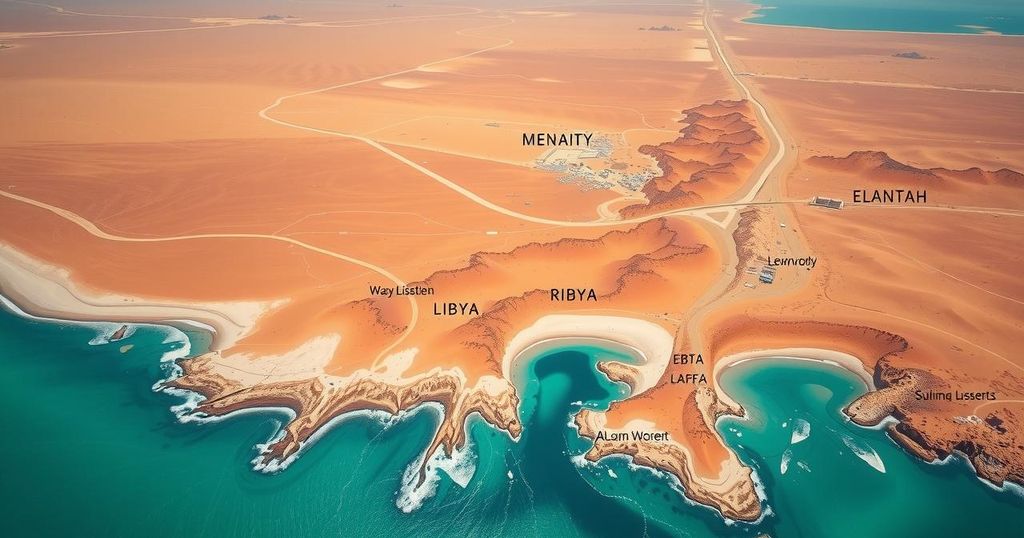Libya’s Ongoing Turmoil: A Nation Striving for Stability Amid Conflict

Libya continues to experience deep political turmoil and instability, impacting its citizens significantly. The aftermath of Muammar Gaddafi’s fall in 2011 has led to ongoing conflicts and diminished governance. Despite international attempts for dialogue, the situation remains precarious, compounded by challenges in humanitarian efforts and economic hardships.
Libya’s situation is persistently troubling, marked by ongoing political turmoil and instability. This North African country has been grappling with factional fighting and inadequate governance since the fall of Muammar Gaddafi in 2011. Various political entities continue to vie for power, leading to a fragmented national landscape that profoundly affects daily life for its citizens.
Numerous citizens suffer from the impacts of conflict, escalating violence, and human rights abuses. The civil strife has led to mass displacement, with many individuals seeking refuge in neighboring nations. Meanwhile, economic hardships are exacerbated by corruption, insufficient infrastructure, and a lack of job opportunities.
International efforts aimed at stabilizing Libya have yielded mixed results. The United Nations has spearheaded initiatives to facilitate dialogue among warring factions, urging them to reach a consensus for peaceful governance. Despite these attempts, the effectiveness of external mediation often seems limited, with progress appearing slow and tenuous.
As if this were not enough, the country’s natural resources, particularly oil, have frequently become the focal point for conflict. Various groups have sought control over these lucrative assets, further complicating the prospects for peace and stability. Moreover, the ramifications of foreign involvement in Libya’s conflict raise concerns regarding sovereignty and national integrity.
Humanitarian organizations have also been doing their best to address the dire conditions on the ground. Access to education, medical services, and basic necessities remains critically compromised. Various NGOs have reported increasing challenges in delivering aid due to both security concerns and bureaucratic hurdles.
Amid lingering unrest, Libyan citizens continue to hold out hope for a brighter future. Grassroots movements and community organizations are emerging, aiming to promote unity and rebuild trust among the fractured populace. As recent developments unfold, it will be crucial to monitor how local and international actors respond to the ongoing challenges facing Libya and work toward a resolution that ensures lasting peace.
In summary, Libya remains entangled in a web of conflict marked by political fragmentation and economic difficulties. While international efforts pace forward, the country’s dire humanitarian situation persists. The fate of Libya will likely hinge on the joint efforts of local citizens and external support to forge a path toward stability and peace.
Original Source: www.messenger-inquirer.com







